10 Quotes on Boosting Young Children’s Social-Emotional Development
August 6, 2024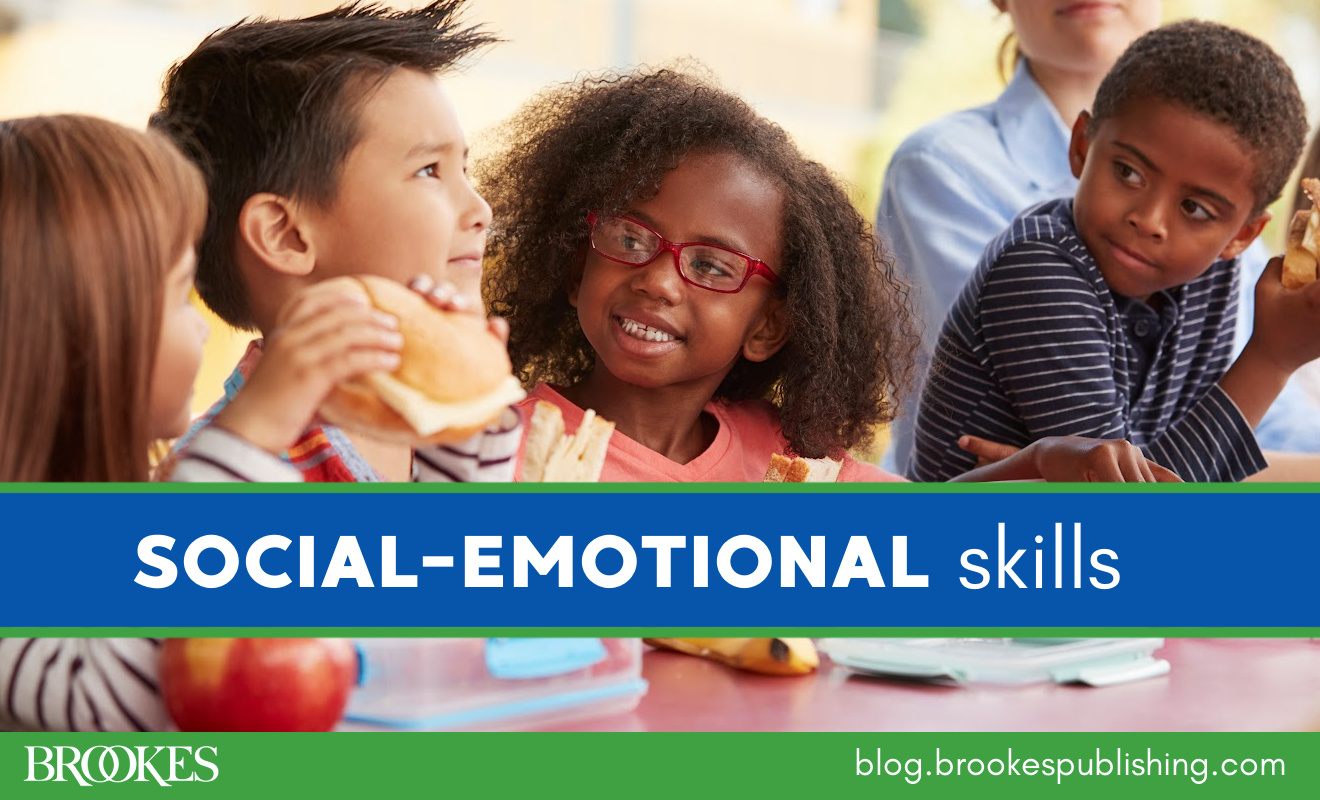
Every early childhood educator knows about the importance of healthy social-emotional development—especially in the formative first years of school. As a new year of learning gets started, we’re sharing some helpful quotes and guidelines from Brookes experts on boosting young children’s social-emotional development. Keep these quotes and tips in mind all year as you enhance the good work you’re already doing and nurture the social skills and emotional well-being of every child you work with.
Make all activities social.
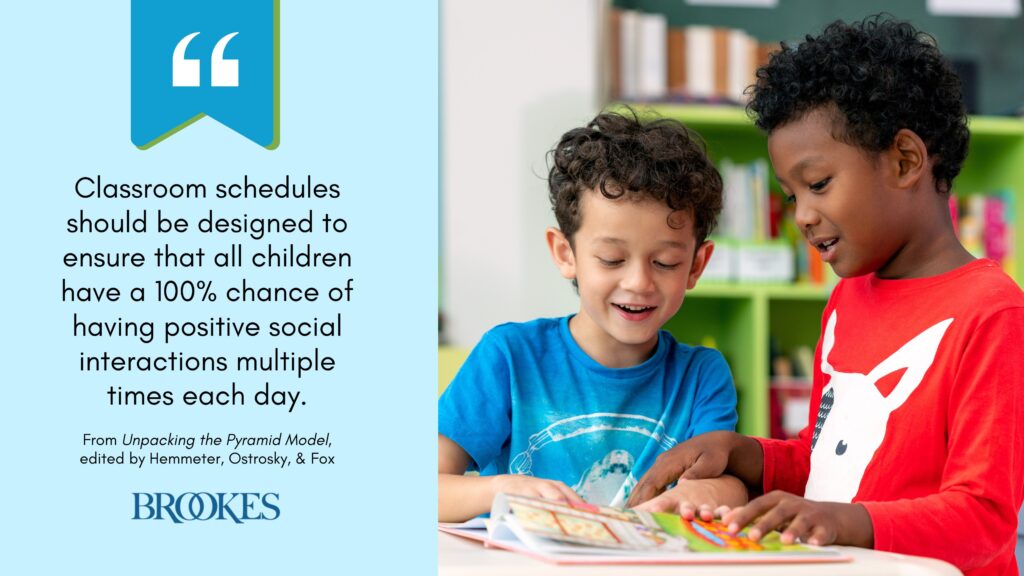
The popular guidebook Unpacking the Pyramid Model suggests that teachers purposefully design classroom routines and activities to facilitate social interactions. For example, “during center time, teachers can encourage positive social interactions across activities (e.g., ‘Eliza, ask Lupe for a turn with the cash register!’), provide suggestions for social interactions (‘I wonder if you can build a higher tower if you work together!’), and design centers such that children have to play near and with each other.” (For a deeper dive, see the blog post 14 Great Friendship Supports for Early Childhood Classrooms.)
Proactively teach empathy.
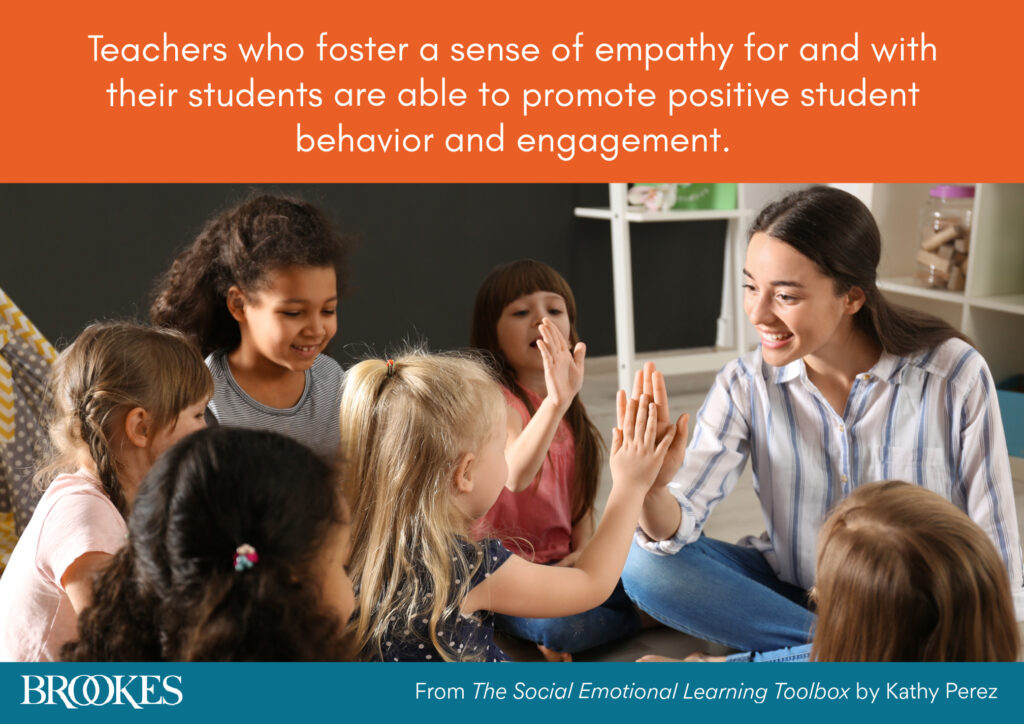
When you explicitly teach empathy, you’ll help students become more aware of how their words and actions affect others—and inspire them to shift their behaviors accordingly. Model empathy in your classroom and use activities and strategies to foster this essential skill in your students. This blog post on empathy has some practical ideas to get you started. (Quote from The Social‑Emotional Learning Toolbox by Kathy Perez.)
Try “Breathe–Move–Learn” activities.
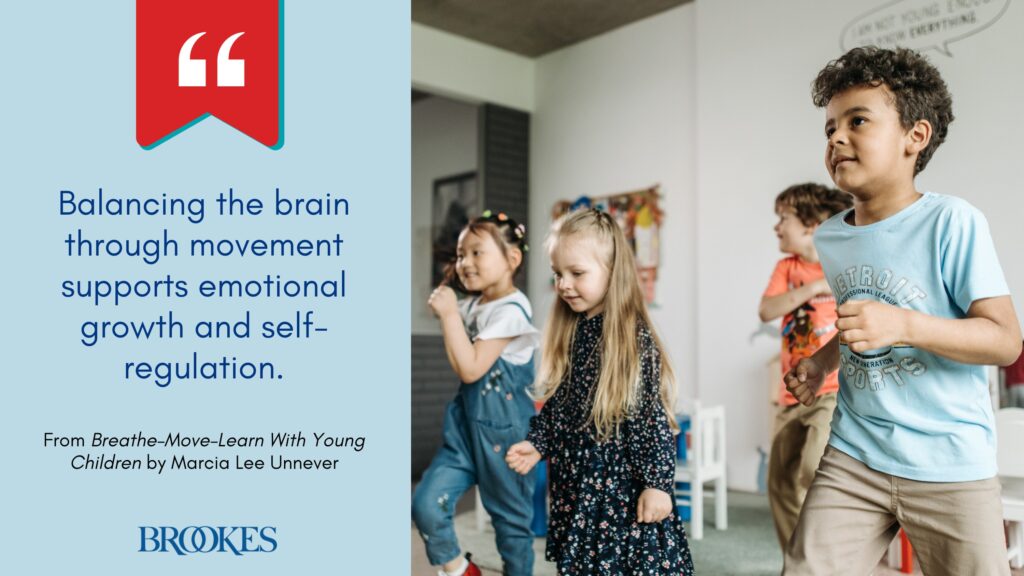
Did you know that movement-based activities can support young children’s social-emotional development? Marcia Lee Unnever shows you how in her great new guidebook Breathe—Move—Learn With Young Children, a collection of 70 fun, quick activities that help kids wake up, calm down, focus, and soothe anxious feelings in as little as 15 minutes a day. Read this blog post for 5 Great Reasons to “Breathe—Move—Learn” With Young Children.
Teach kids to identify emotions.
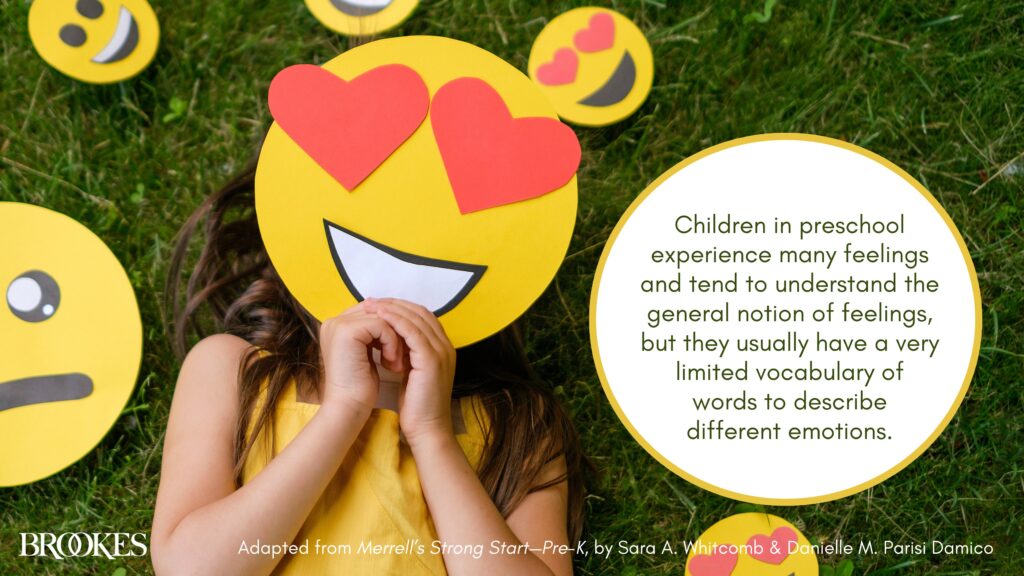
Children benefit from having a richer vocabulary they can use to identify and talk about their emotions. Teach kids about feelings and encourage healthy social-emotional development with the fun and easy games and activities in this blog post, adapted from Merrell’s Strong Start—Pre-K and other Brookes resources.
Address common stressors in your classroom.
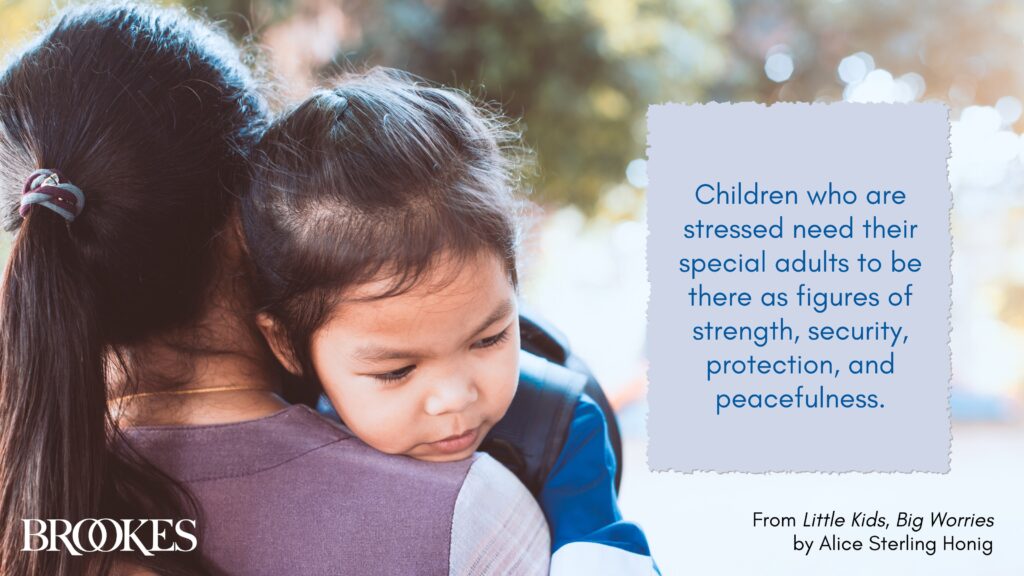
Young children navigate a minefield of stressors that can affect their social-emotional health, from short-term events like getting scolded by a parent or witnessing a fight at school to long-term situations like divorce, poverty, and family relocation. Look for ways to address and reduce stress in your classroom. Take the time to explain new events to children before they happen, provide sincere and specific praise, try tension-releasing dances and exercises, and use creative art activities to relieve stress and explore emotions. (For more ideas, see Alice Honig’s wonderful book Little Kids, Big Worries, read this blog post adapted from the book, and download this free tip sheet of 20 stress-busters.)
Support kids in working through anxiety.
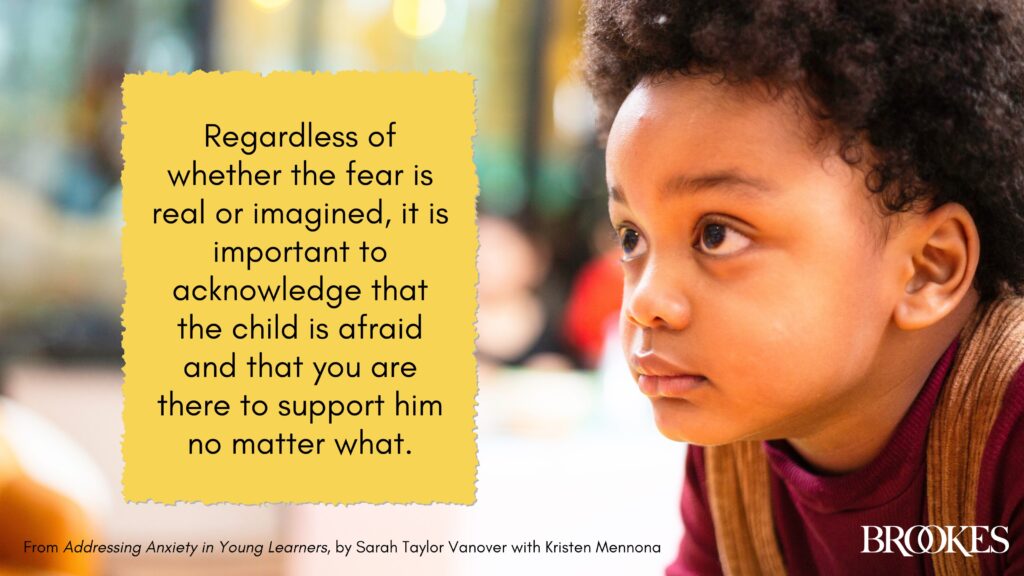
Anxiety isn’t just something older kids struggle with. For young children, anxiety can be a big obstacle to social-emotional development and learning. Add the book Addressing Anxiety in Young Learners to your professional development library, and see these blog posts for tips you can use to support children with anxiety at school and at home and help them work through fears and worries:
- 8 Things Caregivers Can Do to Ease Young Children’s Anxiety
- 11 Calming Techniques for Young Students with Anxiety
- Social Anxiety: Accommodations for 5 Early Childhood Classroom Routines
Reframe your perception of “difficult” students.
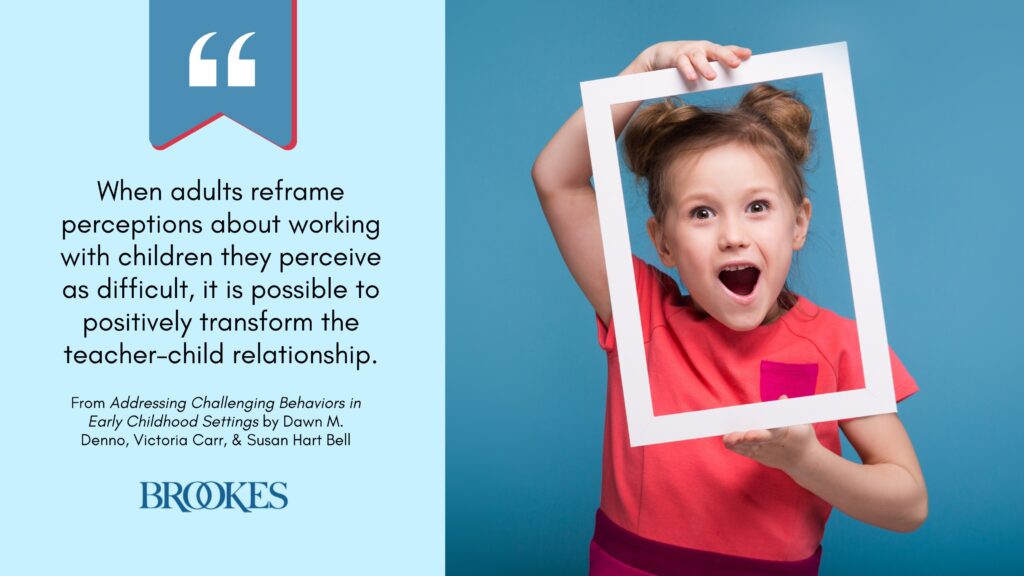
While it may be tempting to think of some children as more “difficult,” it’s important to treat them with grace when they act out. Refraining from labeling students and exploring the why behind their behavior will help you build strong connections with students who are hurting and nurture their social-emotional skills. (Quote from Addressing Challenging Behaviors in Early Childhood Settings by Dawn M. Denno et al.)
Read books about feelings together
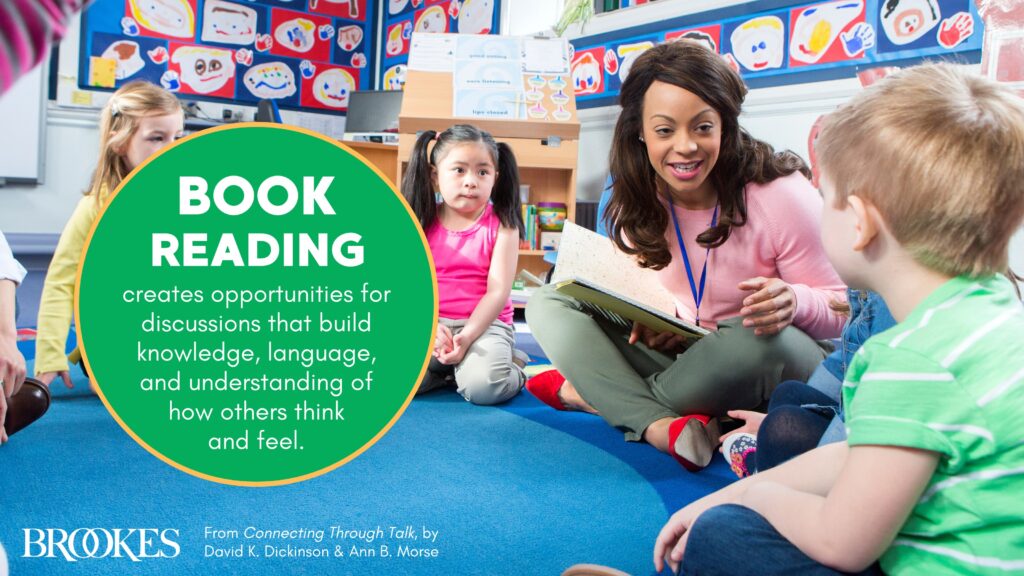
Reading to children does more than build their literacy skills. It helps them think about how others feel, and it reassures them that feelings—even big ones—are okay and normal. Ask a librarian to help you find good books specific to the emotions you want to discuss; for example, if you want to prepare children to deal with anger, read a book such as The Anger Monster by Jennifer Anzin, When Sophie Gets Angry—Really, Really Angry… by Molly Bang, or Sometimes I’m Bombaloo by Rachel Vail. Point out all the ways in which the characters behave when they are acting on their feelings. Use these questions to guide your discussion:
- Which character was angry?
- Do you think it was a good or not good feeling?
- What did the character look like when they were angry?
- What did the character do when angry?
- Did the character use a way that hurts or a way that helps to handle their anger?
(Adapted from Merrell’s Strong Start—Pre-K: A Social and Emotional Learning Curriculum, Second Edition, by Sara A. Whitcomb, Ph.D., & Danielle M. Parisi Damico, Ph.D.)
Build rapport with families.
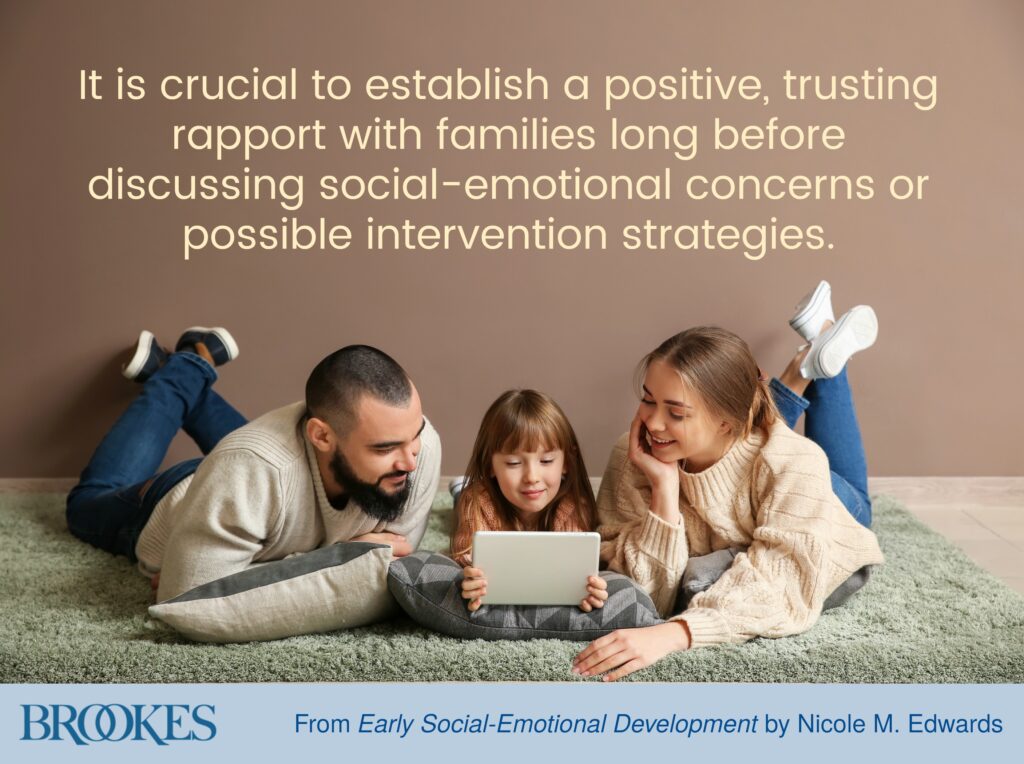
As Nicole Edwards points out in Early Social-Emotional Development, it’s important to develop a rapport with families before you can productively discuss a child’s social-emotional support needs with them. See these two blog posts for ideas on how to connect with families of young children and develop a collaborative partnership with them:
- 8 Strategies for Engaging the Families of Young Children
- 5 Tips for Building a Reciprocal Relationship with Parents of Young Children
Monitor social-emotional development.
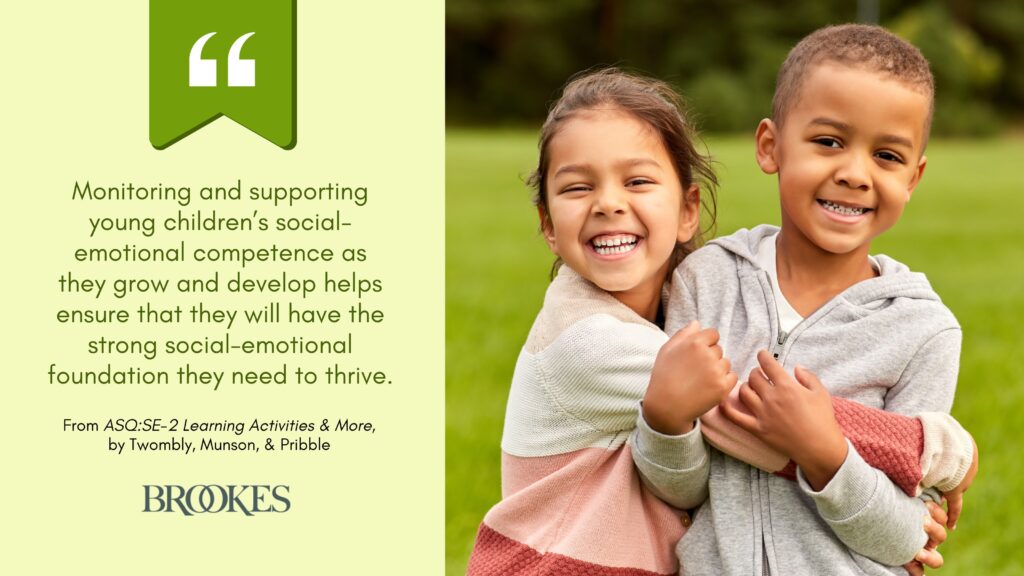
To monitor young children’s social-emotional development and catch any potential issues early, use a reliable screening tool (such as the parent-completed ASQ:SE-2) that takes an in-depth look at key areas of social and emotional development. Screenings are also a wonderful way to reveal social-emotional strengths, so that families can celebrate their child’s developing skills. Between screenings, parents can use the fun, developmentally appropriate ASQ:SE-2 Learning Activities to promote adult–child interaction and key social-emotional skills.

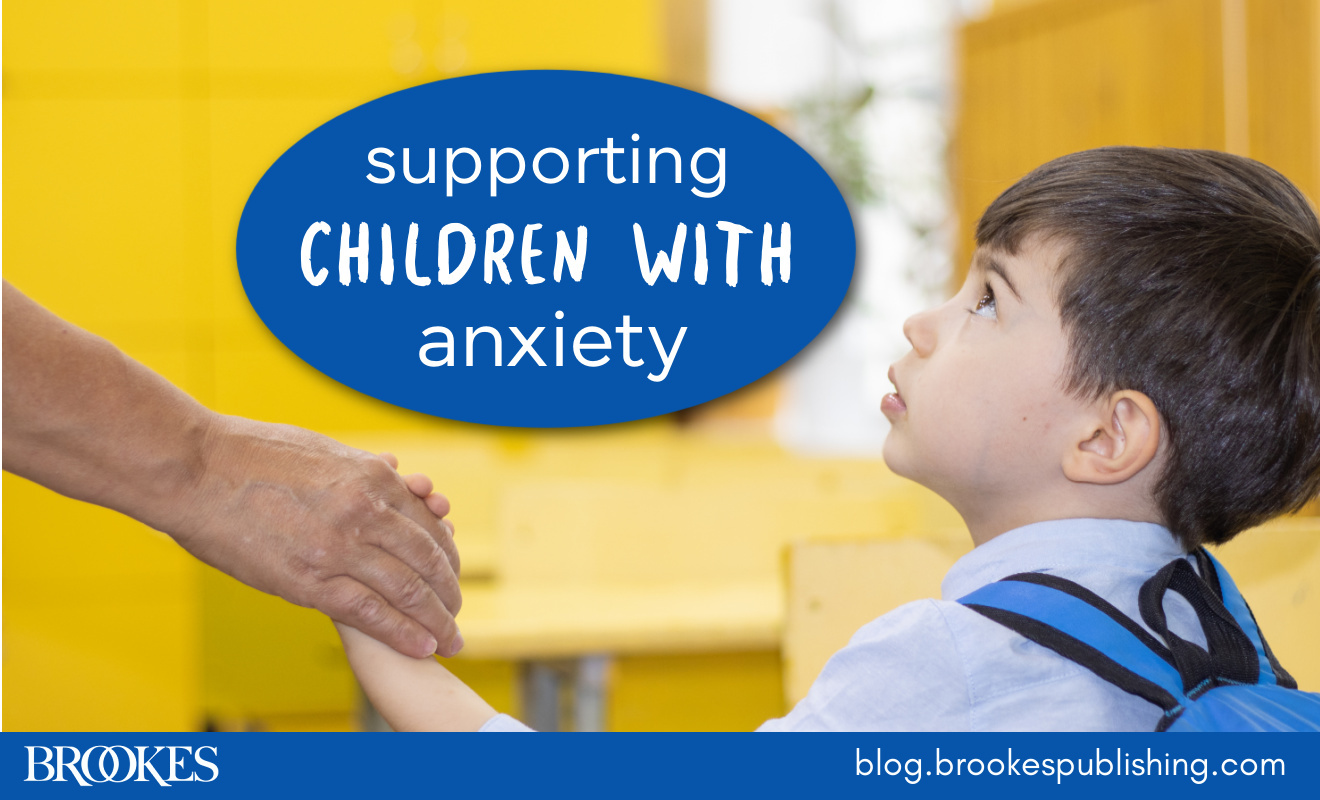
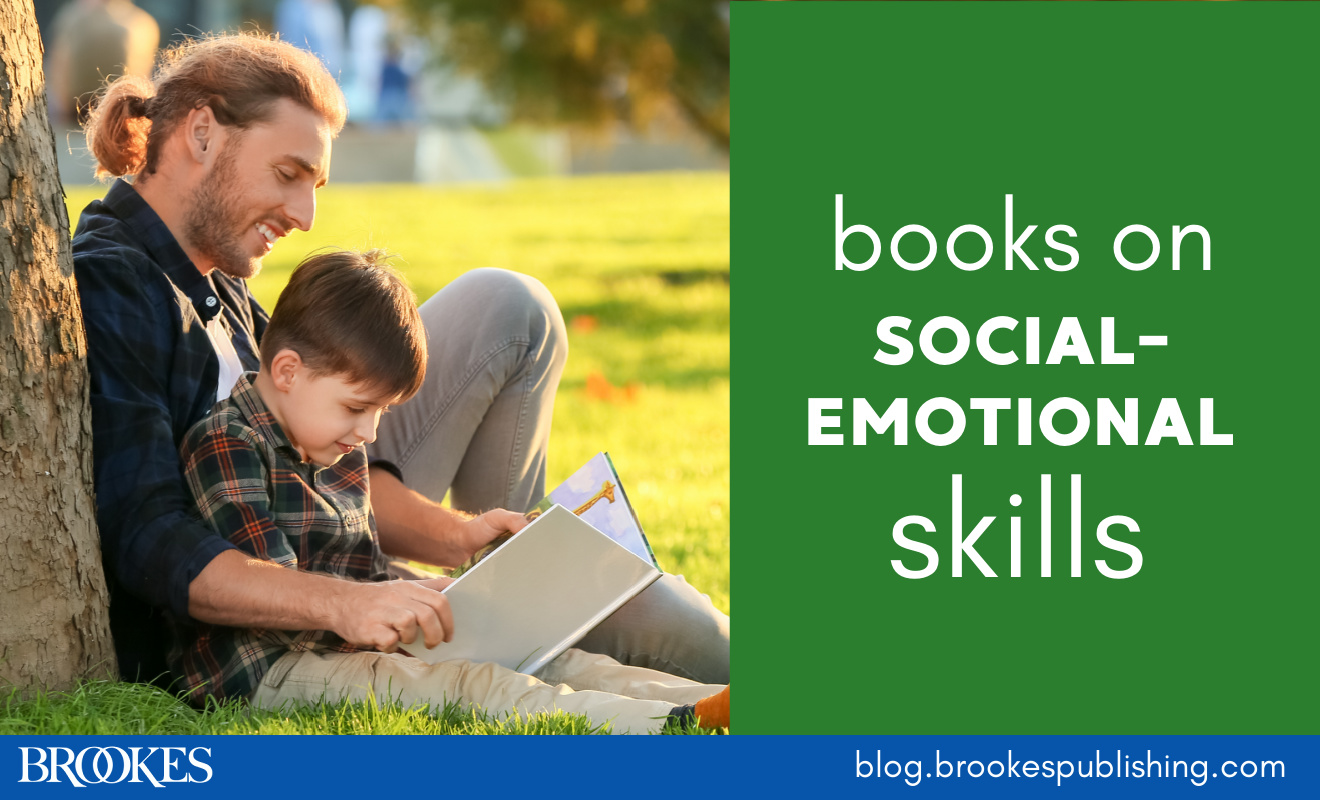
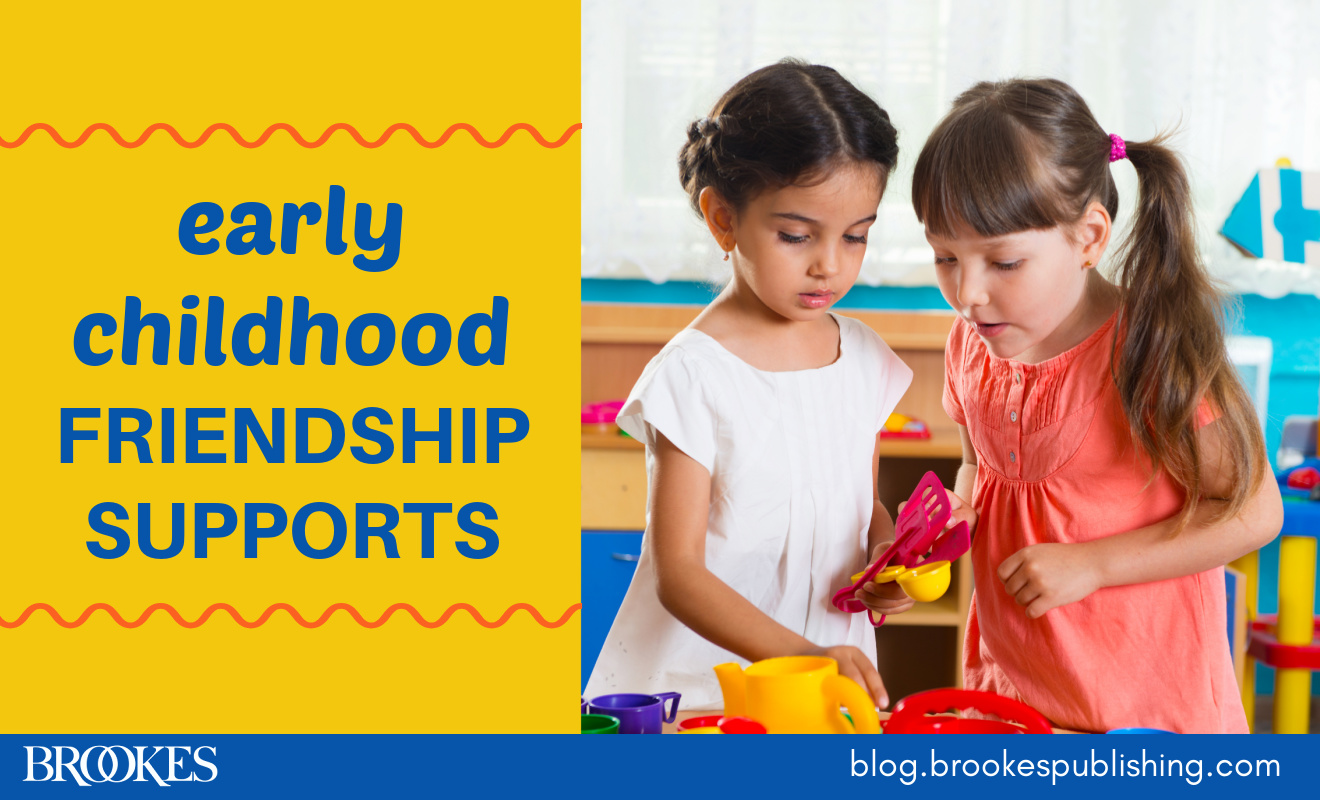
Write a Comment
Your email address will not be published. Required fields are marked *
Post a Comment